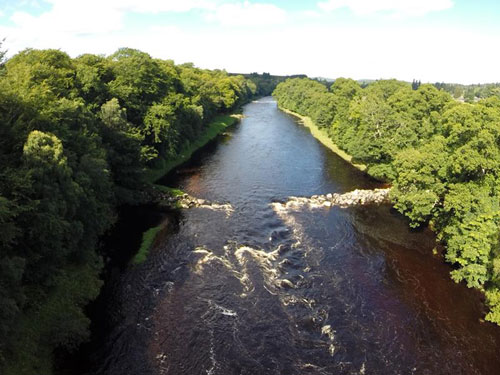A £3.5 million project to improve habitats for freshwater pearl mussels and salmon is set to go ahead next week.
24 large fishing platforms will be destroyed in order to restore the River Dee at Banchory and Sluie.
The platforms, or “croys”, were constructed in the 1990s from large boulders taken from the river bed.

Once a common practice in Scottish rivers, the hope was that they would create pools for salmon and so increase fish catches.
But this was not the case – and they in fact reduced habitat for freshwater pearl mussels, salmon and trout.
Colin Simpson, the Ghillie at Lower Blackhall & Kinneskie fishing beat in Banchory, was frustrated by the construction of the Banchory croys in 1995.
He said: “All the large boulders which made up the river bed were dragged out of the river by a large digger and heaped up to create the croys.
“Others were used to reinforce the banksides, and in the end the river had changed completely. The damage to the freshwater pearl mussels was devastating and the salmon fishing at the beat has never recovered, in fact the catches got worse.”
All the boulders will now be re-distributed in the river bed from where they were taken to provide habitat and ‘lies’ for adult salmon.
At Banchory, 15 croys will be broken up, and a further 9 croys will be removed from Sluie/Commonty with the additional benefit of allowing gravel salmon spawning beds to recover.
The work is being done as part of the Pearls in Peril project (PIP), co-ordinated by Scottish Natural Heritage and working in partnership with the Dee District Salmon Fishery Board and the River Dee Trust.
Edwin Third, of the Dee Fishery Board, said: “Freshwater pearl mussels in the River Dee are under immense pressure as they have been affected by river engineering, sediment pollution and the spread of the aquatic non-native plantRanunculus.”
Freshwater pearl mussels are rare molluscs that live in the gravel beds of clean rivers. They feed by filtering water and removing fine particles and so help to keep our rivers clean.
The mussels are critically endangered and Scotland is one of their few remaining strongholds.